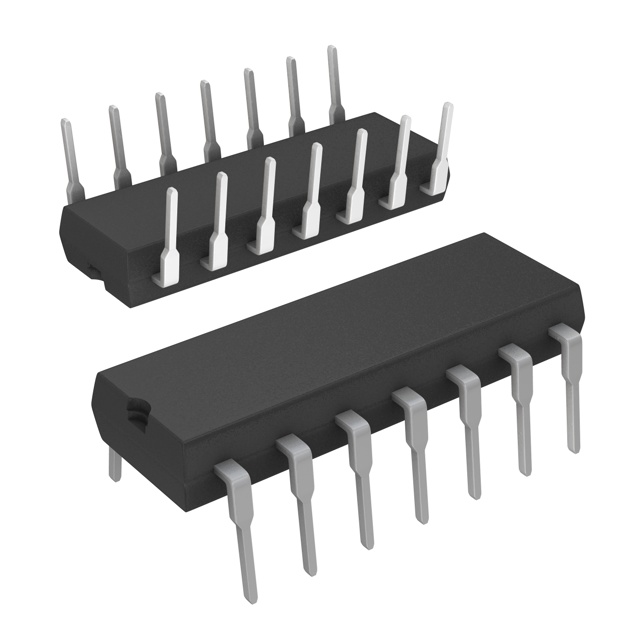74AHCT1G14DBVTE4
Manufacturer No:
74AHCT1G14DBVTE4
Manufacturer:
Description:
IC INVERTER 1CH 1-INP SOT23-5
Datasheet:
Delivery:





Payment:




In Stock : 0
Please send RFQ , we will respond immediately.









74AHCT1G14DBVTE4 Specifications
-
TypeParameter
-
Package / CaseSC-74A, SOT-753
-
Supplier Device PackageSOT-23-5
-
Mounting TypeSurface Mount
-
Operating Temperature-40°C ~ 125°C
-
Max Propagation Delay @ V, Max CL8ns @ 5V, 50pF
-
Input Logic Level - High2V
-
Input Logic Level - Low0.5V ~ 0.6V
-
Current - Output High, Low8mA, 8mA
-
Current - Quiescent (Max)1 µA
-
Voltage - Supply4.5V ~ 5.5V
-
FeaturesSchmitt Trigger
-
Number of Inputs1
-
Number of Circuits1
-
Logic TypeInverter
-
PackagingTape & Reel (TR)
-
Product StatusDiscontinued at Digi-Key
-
Series74AHCT
The 74AHCT1G14DBVTE4 is a single Schmitt-trigger inverter integrated circuit chip. Some advantages and application scenarios of this chip are:Advantages: 1. Small package size: The chip comes in a very small SOT-23 package, making it suitable for applications where space is limited. 2. Low power consumption: The chip operates at low power supply voltages (2.0V to 5.5V) and has low power dissipation, making it energy-efficient. 3. High-speed operation: The chip has a high-speed propagation delay, allowing for fast signal processing. 4. Schmitt-trigger input: The chip incorporates a Schmitt-trigger input, which provides hysteresis and improves noise immunity, making it suitable for applications with noisy input signals. 5. Wide operating temperature range: The chip can operate in a wide temperature range (-40°C to 125°C), making it suitable for various environments.Application scenarios: 1. Signal conditioning: The Schmitt-trigger input of the chip makes it suitable for signal conditioning applications, where noisy or weak input signals need to be converted into clean and reliable digital signals. 2. Oscillators and clock generators: The chip can be used to generate square wave signals for clocking purposes in digital systems. 3. Level shifting: The chip can be used to shift the logic levels of signals from one voltage domain to another, making it useful in interfacing different logic families or voltage levels. 4. Noise filtering: The Schmitt-trigger input of the chip helps in filtering out noise and providing a clean output signal, making it suitable for noise-sensitive applications. 5. Battery-powered devices: The low power consumption of the chip makes it ideal for battery-powered devices, where energy efficiency is crucial.It is important to note that the specific application scenarios may vary depending on the requirements and design considerations of the overall system.
74AHCT1G14DBVTE4 Relevant information







